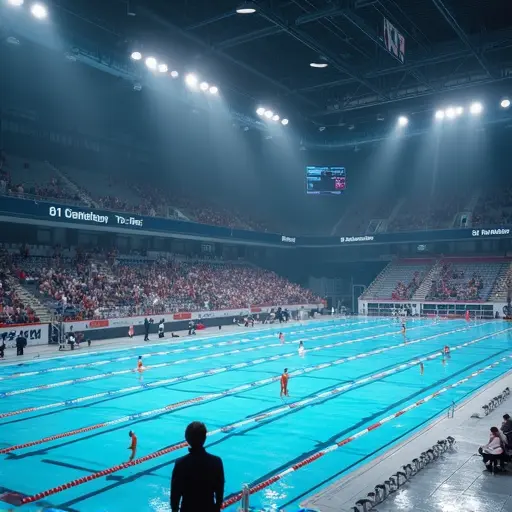
Global Sports Leagues Embrace Mixed Reality for Fan Engagement
Major sports leagues worldwide are revolutionizing how fans experience live events through cutting-edge virtual engagement tools. The NBA, NFL, MLB, and international football clubs are deploying mixed reality features that deliver interactive experiences during live matches, transforming passive viewing into active participation.
Next-Generation Fan Experiences
According to recent industry reports, the global fan engagement market is projected to reach $66.7 billion by 2034, growing at a remarkable 15.2% CAGR from its current $16.2 billion valuation. North America leads this transformation, capturing over 36.8% market share with revenue of $5.96 billion in 2024.
The integration of augmented reality (AR) and virtual reality (VR) technologies allows fans to access real-time statistics, player profiles, and interactive overlays directly through their smartphones or AR glasses. ESPN has reported 15% higher viewer engagement when using AR enhancements during broadcasts, with a 20% increase in viewer retention during major sporting events.
Stadium Transformation and Smart Venues
Modern stadiums like SoFi Stadium in Los Angeles and Allegiant Stadium in Las Vegas are setting new standards with 5G capabilities, augmented reality features, and seamless in-app services for food ordering and live stats. These "smart stadiums" are becoming year-round entertainment hubs that drive economic activity beyond sports events.
PwC's Sports Industry Outlook 2025 reveals that 12% of major US venues (approximately 13 stadiums) are reaching the end of their 27-year average lifespan, creating significant opportunities for modernization with digital engagement technologies.
AI-Powered Personalization
Artificial intelligence is playing a crucial role in delivering hyper-personalized fan experiences. The recent Paris Olympics showcased AI-generated commentary and personalized daily recaps through NBC's Peacock platform, offering 7 million different content variations based on viewer preferences.
Several MLB teams have implemented facial recognition technology for hands-free stadium entry, while teams across various sports are creating digital twins of players to monitor performance and predict potential injuries.
Younger Audience Engagement
The shift toward digital engagement is particularly important for attracting younger demographics. Recent studies show that only 47% of Gen Z identify as sports fans compared to nearly 70% of Millennials. However, younger fans are 1.4 times more likely to attend live sports and willing to spend $70 more on average for tickets than older generations.
These tech-savvy audiences expect real-time interaction, with 58% of US sports fans demanding real-time statistics and AR overlays during events, rising to 70% among Gen Z and Millennials.
Revenue Opportunities and Sponsorship Growth
The sports sponsorship market is poised for massive growth, expected to reach $115 billion in 2025 and projected to top $160 billion by 2030. Virtual engagement tools are creating new revenue streams through digital merchandise, exclusive content, and premium interactive experiences.
Platforms like Sportian's OTT service for Major League Rugby generated $10.4 million in fan spending within just four months of launch, demonstrating the financial potential of well-executed digital engagement strategies.
Future Outlook and Challenges
While the opportunities are substantial, organizations face challenges including high implementation costs and privacy concerns. Small and mid-sized teams may struggle with the millions of dollars required for comprehensive digital engagement ecosystems.
However, with 78% of major sports teams planning increased investment in AI-driven engagement tools, the industry is clearly committed to transforming how fans connect with their favorite teams and athletes.
The convergence of mixed reality, artificial intelligence, and mobile technology is creating unprecedented opportunities for fan engagement that will redefine sports entertainment for generations to come.

 Nederlands
Nederlands
 English
English
 Français
Français
 Deutsch
Deutsch
 Español
Español
 Português
Português








